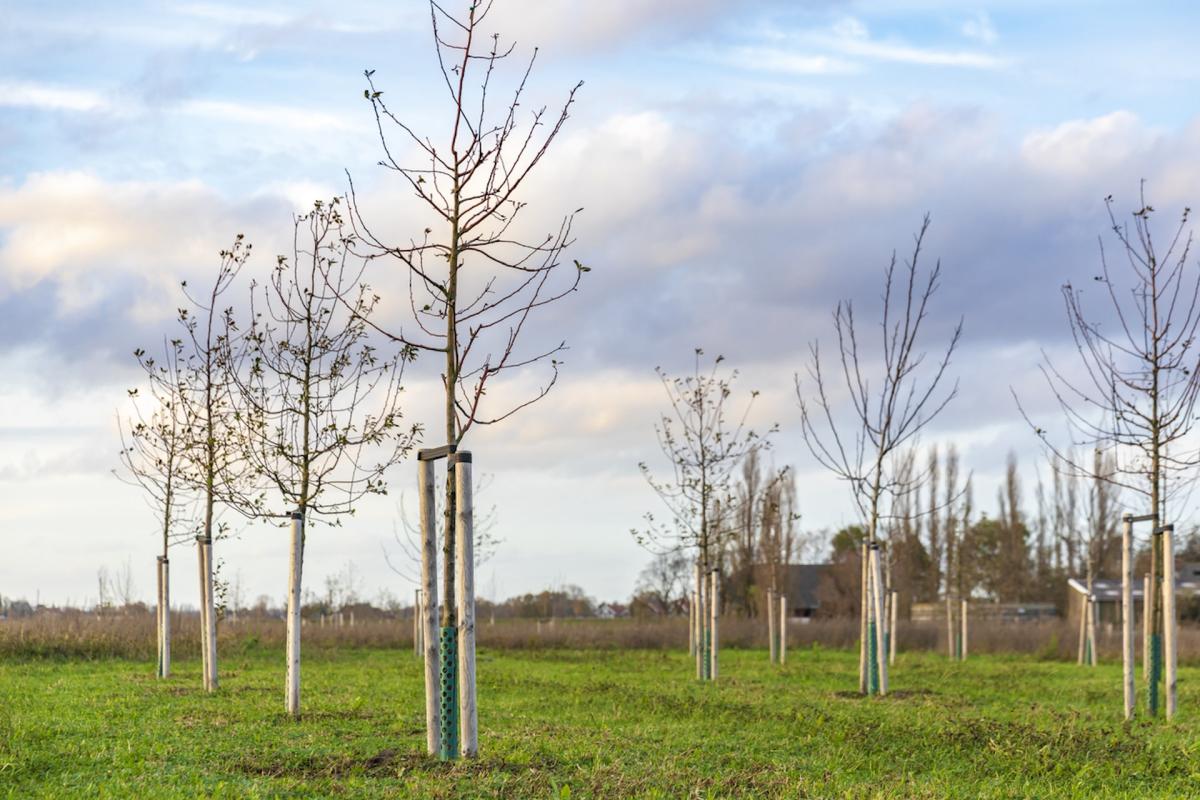“We risk reducing natural ecosystems to one metric…"
TLDR Planting one species of tree instead of an ecosystem of multiple species of native trees is not a good idea.
The issue isn’t that we’re planting trees, it’s they’re planting one species of rapidly growing tree in areas that it isn’t native. Because it’s easier…
To do this right means planting a slew of native trees in parts, some trees spaced randomly, come back in 5 years plant some more, come back in 10 years plant some more to fill in again. Forests shouldn’t have one consistent layer of tree cover, if you do that no sunlight gets to the ground for ground foliage growth that is so essential for forest ecosystems. Also don’t clear and replant fallen trees immediately, fallen trees are huge boosts for forest biomes by fertilizing the ground again and providing a home for shrubbery and critters. We need to build forests, not just trees
The issue isn’t that we’re planting trees, it’s they’re planting one species of rapidly growing tree in areas that it isn’t native. Because it’s easier…
Those trees are often the ones logging operations prefer (whether for lumber or paper mills).
Ontario, Canada has done the same for decades to feed mills.
While this is an issue, there are more than a few “non-profits” that have come into existence in the past 5 to 10 years that are “saving the world by planting millions of acres of trees”. These assholes are even more guilty than the lumber companies because at least the lumber companies are planning on cycling the trees, not trying to repopulate a forest the wrong way.
A more effective solution would be to mandate that all trees that are lumbered must be replaced 1:1 with saplings of the same species. It won’t fix the loss of old growth, but at least it will give a chance for maintaining biodiversity so long as there aren’t any overzealous moose or goats.
mandate that all trees that are lumbered must be replaced 1:1 with saplings of the same species
Been awhile since I studied forestry and took fields trips, but is that not exactly what they do? Lumber companies are sustainable, if they we’re replacing 1:1, they would be out of business in a generation or two.
I see it in the South with pines, everywhere I go. Consistently sized groups of trees, consistent density. You can tell what stage they’re all at.
Oh! I think I get you. But I’m not aware of any modern companies whacking down diverse forests. They’ve been monoculture forever.
There are many that own and manage monoculture lands to ensure steady output, but they also own old growth as backups just in case something happens to the monocultures. Also, and this is 100% rectally sourced, new logging companies do start and not all of them can inherit a monoculture from some other company. And yeah, monocultures could do with some mixing up, but I was only requiring for new cuts.
Generally, that’s what happens. These cutblocks are there because most or all of the trees were of a species that was logged. You might as well plant the same species, because it will eventually end up that way anyway, it just takes longer.
Cutblocks left alone will have some species flourish for a while, but eventually they end up with the species that dominated before by virtue of the soil types and environmental factors. And if you plant that species in parts of the logging area that didn’t support them, they’ll get outcompeted anyway by volunteers of that dominant species.
I’ve backpacked in a lot of virgin and non-virgin country, and the forests that have been logged don’t look much different after 40 years than the ones that have never been logged. Just the size of the dominant species changes.
That is a great idea though you might want to get a third party to survey what trees are planted where before the logging company does so you know what get removed and replanted are actually accurate.
So when a forestry company goes to an area with spruce, cuts down the spruce, and plants more spruce, should they also plant species that will get drowned out by the species that was successful in the area to start with? I don’t see the point. That’s why there were spruce there.
Because natural forests are never a monoculture. In replanted areas it is always a monoculture, and that leads to massive problems with infestations (ie: the mountain pine beetle in BC) that kills thousands of hectares of forests, that leads to the massive fire season Canada had last year.
Adding to that is the fact deciduous trees act as a firebrake between pine/spruce, limiting forest fires.
But … this certificate says I’m a Scottish lord now…
Somewhat OT- When my mom was a little kid, there was an ad (I think a magazine ad?) that said for a certain small amount of money, you could own a square inch worth of land in Alaska. So she sent away the money and they sent her a deed for the square inch, along with a notice saying that for an additional fee, they would send her the square inch. So she paid it and they sent her a square inch of dirt in a box. I kind of wish she’d kept it.
As you wish m’laird
I’ll have a side of industrial robber baron with that, please.
I actually saw Neil Degrasse Tyson straight up lie about how plants take carbon out of the atmosphere.
He claimed that when plants die, all the carbon they absorbed gets released back into the atmosphere. That’s such complete bullshit and really cemented him as just another bill nye who doesn’t know what he’s talking about.
If oil is made primarily from dead plants and plants “release all the carbon they absorbed back into the atmosphere when they die,” then how are we getting even more carbon to release by burning oil?
He also lied about it being the fault of engineers for designing aqueducts that outlast their civilization.
So most oil comes from prehistoric algea. Most coal I believe comes from trees that evolved before fungus and bacteria could break down wood. Wood will no longer turn into coal because of fungus and bacteria.






